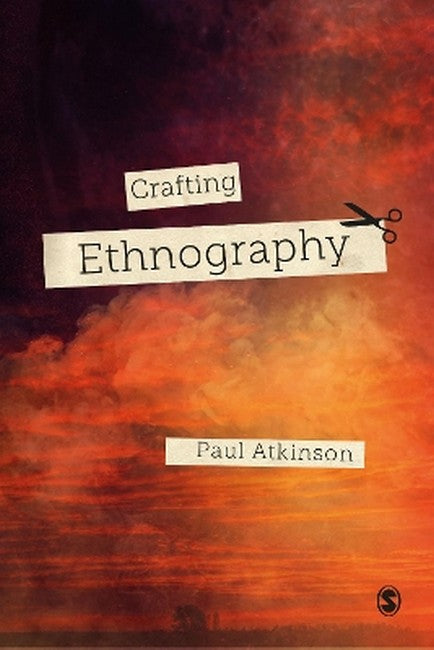Paul Atkinson is Emeritus Profesor of Sociology at Cardiff University. Recent publications include Ethnographic Engagements, with Sara Delamont (Routledge 2021) and Reflexivity and Social Research, with Emilie Morwenna Whitaker (Palgrave 2022). His quartet of books on Ethnography includes For Ethnography (SAGE 2014), Thinking Ethnographically (SAGE 2017) and Writing Ethnographically (SAGE 2019) and Crafting Ethnography (SAGE 2022). The fourth edition of Hammersley and Atkinson Ethnography: Principles in Practice was published by Routledge in 2019. He was a co-editor of the SAGE Foundations of Social Research Methods. He is a Fellow of the Academy of Social Sciences and of the Learned Society of Wales.
Request Academic Copy
Please copy the ISBN for submitting review copy form
Description
Chapter 1: Ethnographic Instances Chapter 2: Ethnographic Knowing Chapter 3: Hot Glass: Embodied Learning Chapter 4: Clay: Tools and Turnings Chapter 5: Two Spoons: Wood and Silver Chapter 6: Looking and Observing: Life-Drawing Chapter 7: Photography: Gaze and Resistance Chapter 8: The Craft of Ethnography
Paul Atkinson, one of sociology's most distinguished ethnographers, has written a remarkable, readable work. Deeply personal and richly analytic, he demonstrates the importance of embodied experience and practical knowledge in making both craft objects and ethnographic texts. Describing his training in shaping wood, silver, glass, and other crafts, materiality and performance are exquisitely joined. This final volume of Atkinson's methodological quartet caps a project that demonstrates how field methods in the hands of a gifted practitioner truly matter. -- Gary Alan Fine Through 'thick participation' we learn with our bodies, and our communication involves much more than words. In this lovely book, Paul Atkinson embarks on an apprenticeship of the senses to show how there can be, as he puts it, 'a lot to be learned from a little'. -- Tia DeNora This fourth of a quartet of magnificent books on ethnography explores the value of an 'aliquot' of fieldwork, aiming at learning much from little instead of little from (too) much data. During thick participation in various sites of craft and artistic activity detailed attention is given to the practical activities of making and doing. In their context methodological issues of the craft of (sensory) ethnography are discussed and illuminating theoretical ideas developed. This book is brilliant and a must-read for every ethnographer. -- Thomas S. Eberle

